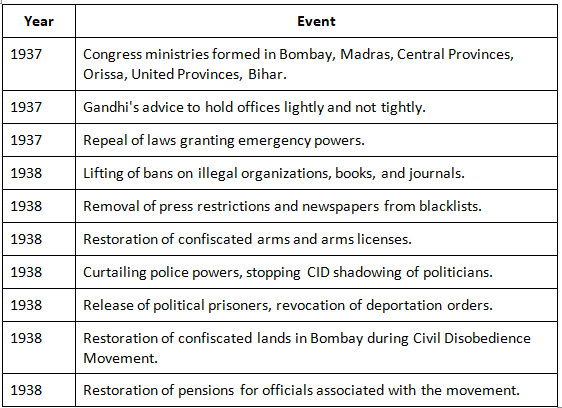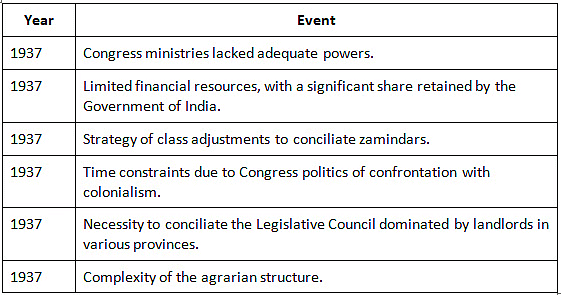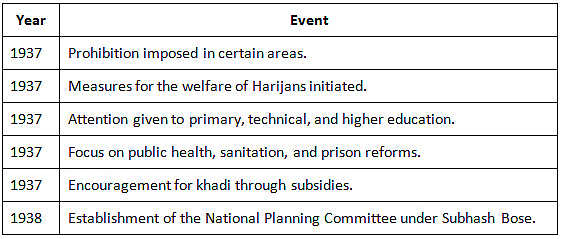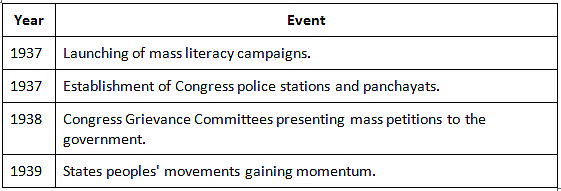Cheat Sheet: Congress Rule in Provinces | History for UPSC CSE PDF Download
Introduction
The Congress ministries in British India, formed in various provinces, marked a significant phase in the struggle for self-governance. Under the leadership of Mahatma Gandhi, these ministries aimed to bring about social and political reforms. This chronology document will outline key developments in Civil Liberties, Agrarian Reforms, Attitude Towards Labour, Social Welfare Reforms, and Extra-Parliamentary Mass Activity during the 28-month Congress rule (1937-1939).
Civil Liberties

Agrarian Reforms

Attitude Towards Labour

Social Welfare Reforms

Extra-Parliamentary Mass Activity of Congress

Conclusion
The 28-month Congress rule showcased the efficacy of using state power for social transformation. Despite challenges in agrarian reforms and labor relations, the ministries contributed to the confirmation of the need for Indian self-governance. The period also witnessed effective control of communal riots, a decline in bureaucratic morale, and the weakening of the notion that Indians were unfit to rule. The ministries resigned in October 1939 with the outbreak of World War II, leaving a lasting impact on the trajectory of India's struggle for independence.
|
110 videos|653 docs|168 tests
|
FAQs on Cheat Sheet: Congress Rule in Provinces - History for UPSC CSE
| 1. What were the main factors that led to the Congress rule in provinces during the UPSC exam? |  |
| 2. How did the Congress party gain support from the Indian population during the UPSC exam? |  |
| 3. What role did the failure of the British government play in the Congress rule in provinces during the UPSC exam? |  |
| 4. How did various movements and protests carried out by the Congress party contribute to their rule in provinces during the UPSC exam? |  |
| 5. What were the key achievements of the Congress rule in provinces during the UPSC exam? |  |
















